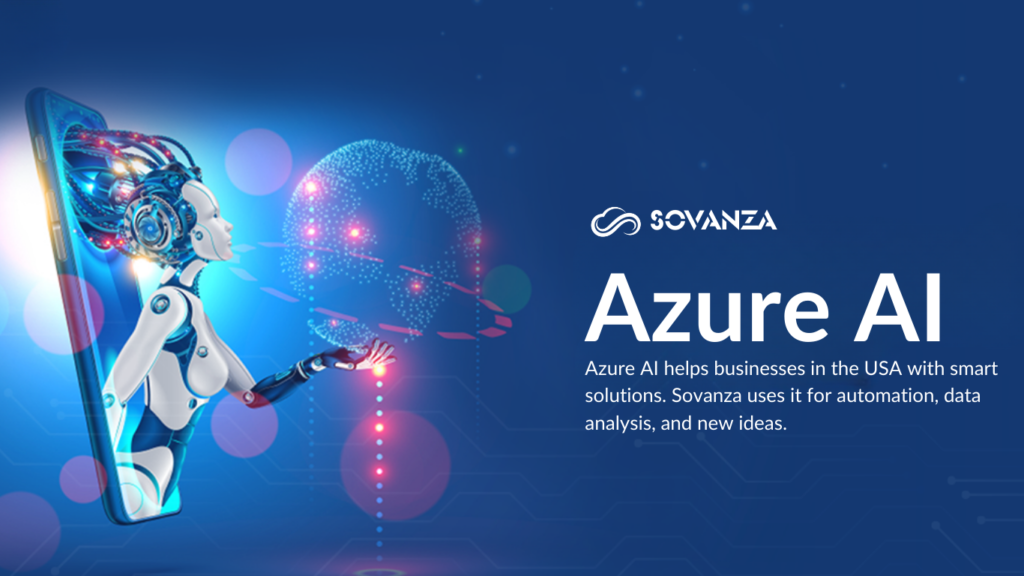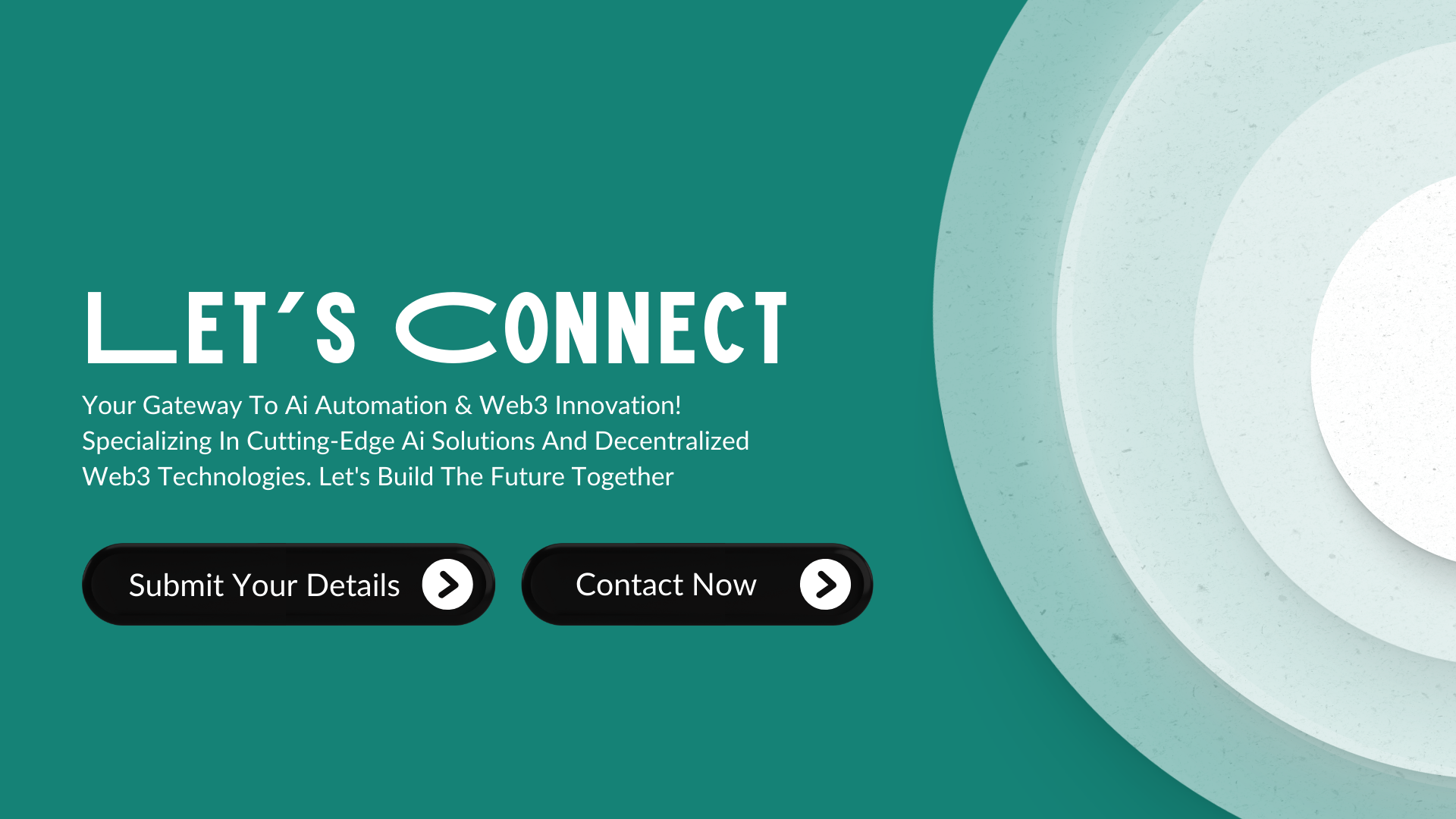
Introduction
Azure AI is a powerful cloud-based artificial intelligence platform by Microsoft that offers advanced machine learning, generative AI, and cognitive services. It enables businesses to automate processes, gain data-driven insights, and enhance customer experiences with tools like Azure OpenAI, Machine Learning, and Cognitive Services. As AI adoption grows, companies across the USA use Azure AI to drive efficiency, innovation, and competitive advantage.
Sovanza is a trusted AI solutions provider specializing in AI implementations for businesses across the USA. With deep expertise in AI consulting, automation, and security, Sovanza helps companies integrate AI seamlessly into their operations. From custom AI strategies to ongoing optimization, Sovanza ensures that businesses maximize the full potential of Azure AI for long-term success.
What is Azure AI?
Azure AI is Microsoft’s cloud-based artificial intelligence platform, which includes machine learning, cognitive services, and generative AI capabilities. It helps enterprises to create, implement, and scale AI-powered applications using technologies, including Azure OpenAI, Azure Machine Learning, and Cognitive Services. Azure AI automates workflows, improves customer experiences, and enables data-driven decision-making.
It includes:
- Azure OpenAI Service – Access to powerful generative AI models like GPT-4, DALL·E, and Codex.
- Azure Machine Learning – A robust platform for developing, training, and deploying scale-based machine learning models.
- Cognitive Services – AI-powered APIs for vision, speech, language, and decision-making.
- Azure AI Studio – A new, user-friendly environment for developing and fine-tuning AI models.
Why is Azure AI the Best Choice for Business Growth?
Azure AI has changed businesses across the United States by providing powerful AI solutions for automation, data-driven insights, and improved customer experiences. Companies can gain a competitive advantage by optimizing workflows, improving decision-making, and leveraging sophisticated tools like Azure OpenAI, Machine Learning, and Cognitive Services. Its secure, scalable, and cloud-based architecture makes it the best option for businesses trying to develop and expand in 2025 and beyond.
At Sovanza, we specialize in enabling organizations across the United States to realize the full potential of Azure AI. Our expertise in AI implementation, automation, and custom AI solutions enables businesses to integrate AI into their processes effectively. Businesses that use Azure AI with Sovanza’s advice may generate growth, innovation, and long-term success in an AI-powered environment.
Azure AI Use Cases Across USA Industries
It drives innovation in various industries across the United States by allowing automation, data-driven decision-making, and AI-powered solutions to improve efficiency and growth.
Healthcare
Azure AI is revolutionizing the healthcare industry in the United States by providing faster and more accurate illness diagnosis via AI-powered medical imaging. Virtual health assistants and AI chatbots increase patient involvement while reducing the effort for healthcare workers. Forecasting enables hospitals to optimize resource allocation and improve treatment strategies.
Finance
Financial institutions across the United States utilize Azure AI to detect fraud in real-time and analyze transaction trends to avoid security breaches. AI-powered automation improves loan approvals, credit scoring, and customer verification, increasing efficiency. Predictive analytics enables banks and investment organizations to analyze market risks and optimize their economic approach.
Retail & E-Commerce
It delivers personalized retail experiences with AI-powered suggestion engines, enhancing customer engagement and sales. AI-powered inventory management and demand forecasting assist shops in maximizing stock levels and reducing waste. Chatbots and virtual assistants provide automated customer service 24 hours daily, increasing user experience.
Manufacturing
Manufacturers in the United States utilize Azure AI for quality control, detecting real-time errors, and improving product uniformity. AI-powered predictive maintenance saves equipment downtime by predicting issues before they happen. AI-powered supply chain optimization provides more efficient logistics and manufacturing planning.
Why Sovanza is Your Trusted Azure AI Partner?
Sovanza is your trusted AI partner, providing tailored AI solutions that enhance efficiency, security, and innovation for businesses across the USA.
AI Expertise & Consulting
Sovanza specializes in developing Azure AI solutions for various industries, providing smooth interaction with existing business operations. Our AI experts work with businesses to optimize performance by leveraging machine learning, automation, and AI-driven insights. We offer comprehensive AI consulting services, including strategy formulation, deployment, and maintenance.
Customized AI Solutions
Sovanza tailors Azure AI installations to each organization’s specific needs. Whether it’s AI-powered chatbots, forecasting, or automation tools, we create AI strategies that correspond with your objectives. Our tailored strategy ensures that every AI investment yields the highest efficiency and ROI.
Security & Compliance
Sovanza assures that Azure AI deployments meet the highest security and regulatory standards, including GDPR, HIPAA, and SOC 2. We prioritize data protection and cybersecurity, enabling organizations in regulated areas to use AI solutions confidently. Our strong security measures safeguard critical data and enable smooth AI operations.
AI Maintenance & Upgrades
AI continually evolves, and Sovanza remains ahead of the game by constantly optimizing Azure AI deployments. We offer ongoing assistance, performance monitoring, and AI model updates to keep businesses on the cutting edge of technological developments. Our commitment to long-term success guarantees that clients realize the full benefits of Azure AI.
Sovanza’s AI Success Stories in the USA
With Azure AI solutions, Sovanza drives AI innovation across the USA, helping businesses enhance efficiency, security, and customer experience.
AI Chatbots E-Commerce in New York
A leading e-commerce company in New York partnered with Sovanza to implement Azure AI-powered chatbots. The AI system reduced customer service response times by 60%, automating order tracking and FAQs. This innovation led to higher customer satisfaction and a significant boost in sales.
AI Diagnostics Enhance Healthcare in Los Angeles
Sovanza helped a Los Angeles hospital integrate Azure AI for medical imaging and diagnostics. The AI-powered technology increased early disease detection rates by 40%, allowing for faster and more accurate diagnosis. This shift improved patient care while reducing the workload on medical professionals.
Fraud Detection in Chicago’s Financial Sector
A financial institution in Chicago works with Sovanza to develop Azure AI-powered fraud detection. The system detects and blocks fraudulent transactions in real-time, lowering financial fraud by 35%. The organization also increased security and decision-making by implementing AI-powered risk assessments.
Get Started Today with Sovanza for AI Solutions
Transform your business with cutting-edge Azure AI solutions from Sovanza. Whether you require AI-powered automation, advanced analytics, or clever consumer engagement technologies, our skilled team provides personalized solutions to meet your requirements. We offer seamless integration, top-tier security, and ongoing optimization to keep your company ahead of the AI curve. Partner with Sovanza to maximize the potential of Azure AI. Contact us today to get started and take your business to the next level!
Conclusion
Azure AI is impacting sectors across the United States by giving businesses new capabilities for automation, predictive analytics, and intelligent decision-making. Its cloud-based architecture, advanced machine learning models, and cognitive services make it an indispensable solution for businesses seeking to improve productivity and remain competitive in a quickly changing digital market.
Sovanza is your reliable partner for realizing Azure AI’s full potential. With expertise in AI consultancy, tailored solutions, and continuous support, we assist businesses in effectively integrating AI into their processes. Whether you want to optimize operations, boost security, or drive innovation, Sovanza ensures your AI journey is smooth, secure, and impactful.
FAQs
What is Azure AI, and how does it benefit businesses?
It is Microsoft’s cloud-based artificial intelligence platform, which includes tools for machine learning, cognitive services, and creative AI. AI-powered solutions enable businesses to streamline operations, improve decision-making, and increase consumer engagement.
How does Azure AI compare to other AI platforms?
Azure AI offers deep integration with Microsoft cloud services, enterprise-grade security, and advanced AI models like GPT-4 and DALL·E. Its scalable architecture makes it suitable for companies of any size.
What industries does Sovanza serve?
Sovanza delivers AI solutions for various industries, including healthcare, banking, retail, e-commerce, and manufacturing. It assists enterprises in leveraging AI for operational efficiency.
Why should I choose Sovanza as my AI partner?
Sovanza offers industry expertise, customized AI solutions, and continuous AI optimization to help businesses maximize efficiency and ROI. Our secure and scalable AI implementations ensure long-term business growth and competitive advantage.
How much does it cost to integrate Azure AI with Sovanza?
Pricing varies depending on the complexity and scale of the AI solution. Sovanza provides customized pricing plans based on your business needs. Contact us for a consultation to receive a tailored quote.

